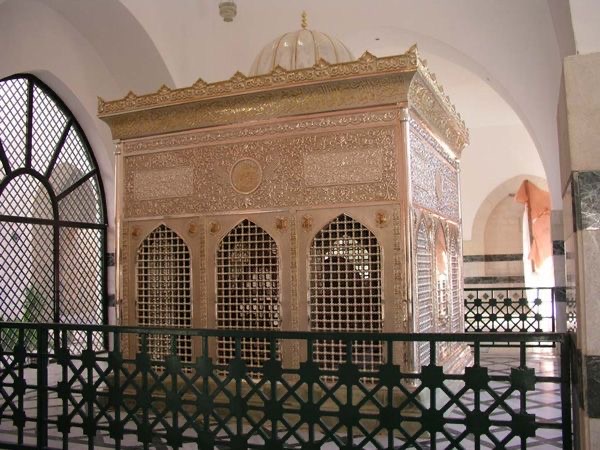Assalamualaikum, Jumuah Mubarak!
Let’s talk about one of the very important people in Islamic history.
Jafar Ibn Abi Talib, a name that reverberates with courage, wisdom, and unwavering faith, stands as a towering figure in the early history of Islam. His life, marked by pivotal contributions and profound sacrifices, offers timeless lessons that continue to inspire Muslims around the world. In this blog, we delve into the remarkable journey of Jafar Ibn Abi Talib, highlighting his key contributions to the nascent Muslim community and the enduring lessons from his life.
Jafar Ibn Abi Talib was born into the illustrious Banu Hashim clan of the Quraysh tribe in Mecca, around 590 CE. He was the son of Abu Talib, the uncle of the Prophet Muhammad, which made Jafar the Prophet’s first cousin. From a young age, Jafar displayed traits of generosity, eloquence, and a strong sense of justice.
When the Prophet Muhammad began receiving revelations and preaching the message of Islam, Jafar was among the early converts. His acceptance of Islam brought both solace and strength to the fledgling Muslim community, which faced relentless persecution from the Quraysh.
One of Jafar’s most significant contributions came during the early years of Islam when Muslims were subjected to severe oppression in Mecca. To protect his followers, the Prophet Muhammad advised them to seek refuge in Abyssinia (modern-day Ethiopia), where a just Christian king, Negus (or Najashi), ruled. Jafar was chosen to lead this delegation.
Jafar’s role as the spokesperson for the Muslim refugees in Abyssinia was a testament to his wisdom and eloquence. When the Quraysh sent emissaries to convince Negus to return the Muslims to Mecca, Jafar’s eloquent defense of Islam and his explanation of its principles deeply moved the king. He recited verses from Surah Maryam, which narrates the story of Jesus and his mother Mary, emphasizing the shared beliefs between Muslims and Christians. Negus, impressed by Jafar’s sincerity and the message of Islam, granted the Muslims asylum, providing them with a safe haven away from persecution.
Jafar and the Muslims remained in Abyssinia for several years until the situation in Mecca and Medina stabilized. He returned to the Prophet Muhammad in Medina around 628 CE, during the time of the Treaty of Hudaybiyyah. His return was met with great joy by the Prophet, who affectionately embraced him and exclaimed, “I do not know what fills me with more joy—the conquest of Khaybar or the arrival of Jafar.”
Jafar’s valor and dedication were once again on display during the Battle of Mutah in 629 CE, one of the significant confrontations between the Muslims and the Byzantine Empire. Appointed as one of the commanders, Jafar displayed extraordinary bravery. When the Muslim standard-bearer Zayd ibn Harithah fell, Jafar took up the banner and fought valiantly. Even when his right hand was severed, he held the banner with his left hand, and when that too was cut off, he held it with his arms until he was martyred. His sacrifice left an indelible mark on the Muslim community, symbolizing ultimate dedication and bravery in the path of Allah.
Jafar Ibn Abi Talib’s life is replete with lessons that resonate through the ages:
- Faith and Resilience: Jafar’s unwavering faith in the face of persecution and his resilience in adversity are profound lessons for Muslims facing challenges in their own lives.
- Advocacy for Justice: His eloquence and diplomacy in Abyssinia highlight the importance of advocating for justice and understanding, using wisdom and compassion.
- Bravery and Sacrifice: Jafar’s heroism in the Battle of Mutah exemplifies the spirit of sacrifice and courage, inspiring Muslims to stand firm in their convictions and values.
- Interfaith Harmony: By highlighting commonalities between Islam and Christianity, Jafar’s dialogue with Negus serves as a timeless example of fostering interfaith understanding and harmony.
The legacy of Jafar Ibn Abi Talib is a beacon of inspiration, illustrating the profound impact one individual can have on a community and a cause. His contributions to the early Muslim community, marked by sacrifice, wisdom, and unwavering faith, continue to echo through history, offering valuable lessons for generations to come. As we reflect on his life, may we draw strength from his example and strive to embody the principles he so nobly championed.
Have a beautiful Friday.
Paysabil.

